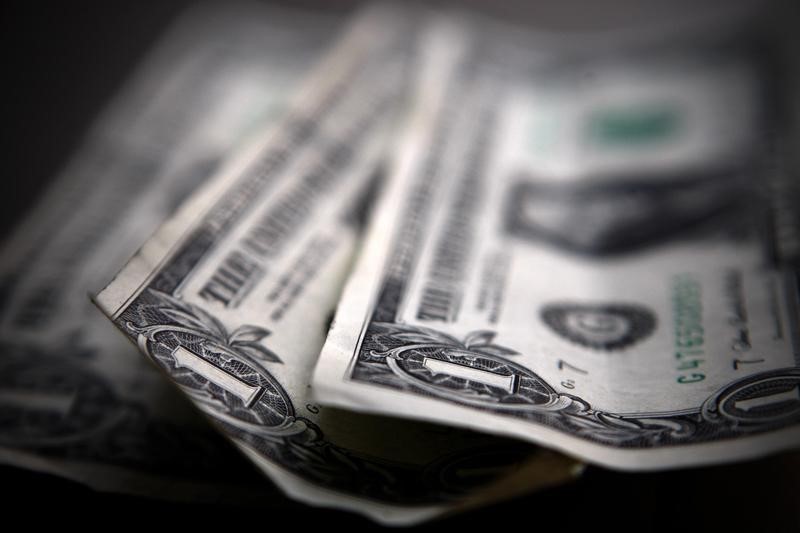BETA Technologies launches IPO of 25 million shares priced $27-$33
Investing.com - The U.S. dollar retreated Wednesday, unwinding a portion of recent gains after comments from Federal Reserve Chair Jerome Powell bolstered rate-cutting bets, while the euro found support.
At 04:25 ET (08:25 GMT), the Dollar Index, which tracks the greenback against a basket of six other currencies, traded 0.3% lower to 98.545, having gained more than 2% over the last month.
Dollar slips after Powell’s speech
The U.S. currency slipped lower following a speech by Jerome Powell on Tuesday, in which the Federal Reserve chair left the door open to further rate cuts by saying the U.S. labor market remained in the doldrums.
Markets are currently priced for a quarter-point cut at the October 28-29 Fed gathering and another at the following meeting in December, followed by three more cuts next year, according to LSEG data.
“Risk sentiment improved throughout Tuesday – boosted by strong U.S. bank earnings – before Powell’s speech added dovish-sounding headlines: slower payrolls, tolerable inflation, and a possible QT rollback,” analysts at ING said, in a note.
“That said, the overall policy stance remains broadly unchanged from September. Fed pricing is steady at 48bp of easing for the rest of the year, and we doubt that will shift much before new inflation and jobs data arrive.”
The main economic data release Wednesday will be the Fed’s Beige Book, which could play a significant role in informing policy given the lack of other data following the U.S. government shutdown.
Euro gains ahead of no-confidence vote
In Europe, EUR/USD traded 0.3% higher to 1.1637, after gaining 0.3% in the previous session, supported by the French government’s proposal to suspend landmark pension reforms.
Prime Minister Sebastien Lecornu, reappointed on Friday having quit at the start of last week, presented a 2026 budget bill to parliament on Tuesday, during which he pledged to delay the pension reform, a key demand from the Socialist Party, which in turn said it won’t back the upcoming no-confidence vote.
With Socialist support, the chances of passing a budget have meaningfully improved, even if parliamentary numbers remain tight.
“If Lecornu survives the no-confidence vote, EUR/USD could edge higher and potentially build strong support around 1.1600,” said ING.
GBP/USD traded 0.2% higher to 1.3350, with sterling bouncing back from declines on Tuesday, when official data showed a cooling in wage growth.
Yen gains despite political uncertainty
Elsewhere, USD/JPY traded 0.4% lower to 151.30, helped by some unwinding in bets of looser fiscal policy under Sanae Takaichi. The Liberal Democratic Party leader now faces a potential challenge to her premiership, after LDP coalition ally Komeito withdrew its support.
USD/CNY traded 0.2% lower to 7.1263, with the Chinese currency taking support from a substantially stronger midpoint fix by the People’s Bank.
U.S. trade tensions remained in play after Beijing admonished U.S. President Donald Trump’s threat of 100% tariffs on China, with the country’s commerce ministry saying it was prepared to fight to the end in any trade war.
Chinese inflation data released on Wednesday showed consumer prices shrank more than expected in September, while producer prices marked their third consecutive year of deflation.
While there were some green shoots in inflation– especially as core consumer inflation hit a 19-month high– there appeared to be few signs of improvement in China’s long-running deflationary trend.
AUD/USD gained 0.5% to 0.6518, with the Aussie dollar recovering a measure of recent losses given the U.S. dollar weakness.
